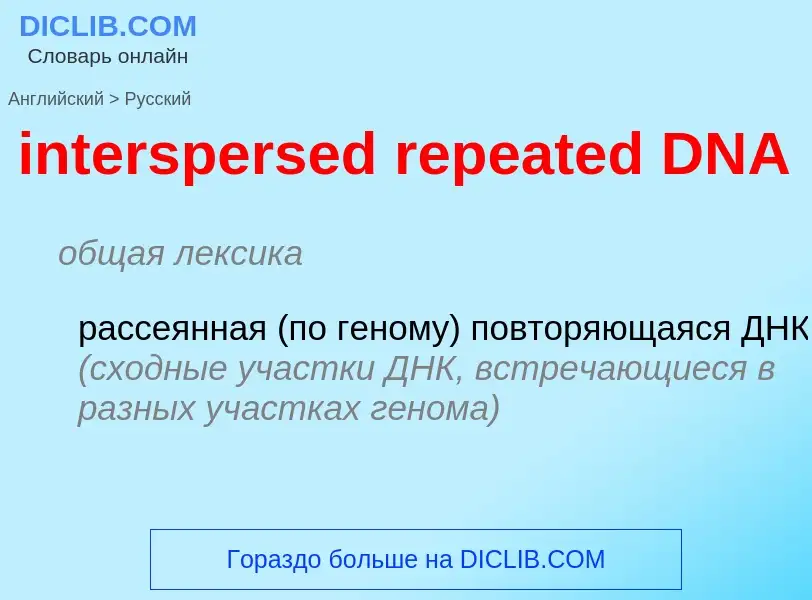Translation and analysis of words by ChatGPT artificial intelligence
On this page you can get a detailed analysis of a word or phrase, produced by the best artificial intelligence technology to date:
- how the word is used
- frequency of use
- it is used more often in oral or written speech
- word translation options
- usage examples (several phrases with translation)
- etymology
interspersed repeated DNA - translation to russian
общая лексика
рассеянная (по геному) повторяющаяся ДНК (сходные участки ДНК, встречающиеся в разных участках генома)
общая лексика
ДНК
содержащая повторяющиеся последовательности
повторяющаяся ДНК
общая лексика
ДНК с высоким содержанием повторяющихся последовательностей
Wikipedia
Repeated sequences (also known as repetitive elements, repeating units or repeats) are short or long patterns of nucleic acids (DNA or RNA) that occur in multiple copies throughout the genome. In many organisms, a significant fraction of the genomic DNA is repetitive, with over two-thirds of the sequence consisting of repetitive elements in humans. Some of these repeated sequences are necessary for maintaining important genome structures such as telomeres or centromeres.
Repeated sequences are categorized into different classes depending on features such as structure, length, location, origin, and mode of multiplication. The disposition of repetitive elements throughout the genome can consist either in directly-adjacent arrays called tandem repeats or in repeats dispersed throughout the genome called interspersed repeats. Tandem repeats and interspersed repeats are further categorized into subclasses based on the length of the repeated sequence and/or the mode of multiplication.
While some repeated DNA sequences are important for cellular functioning and genome maintenance, other repetitive sequences can be harmful. Many repetitive DNA sequences have been linked to human diseases such as Huntington's disease and Friedreich's ataxia. Some repetitive elements are neutral and occur when there is an absence of selection for specific sequences depending on how transposition or crossing over occurs. However, an abundance of neutral repeats can still influence genome evolution as they accumulate over time. Overall, repeated sequences are an important area of focus because they can provide insight into human diseases and genome evolution.

